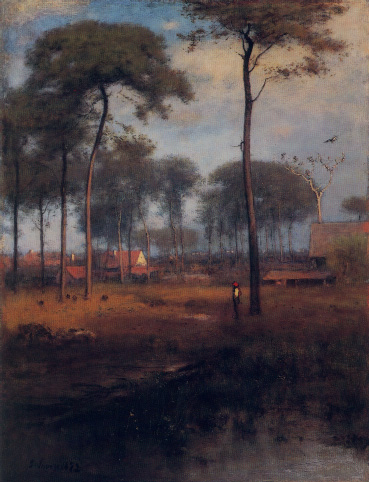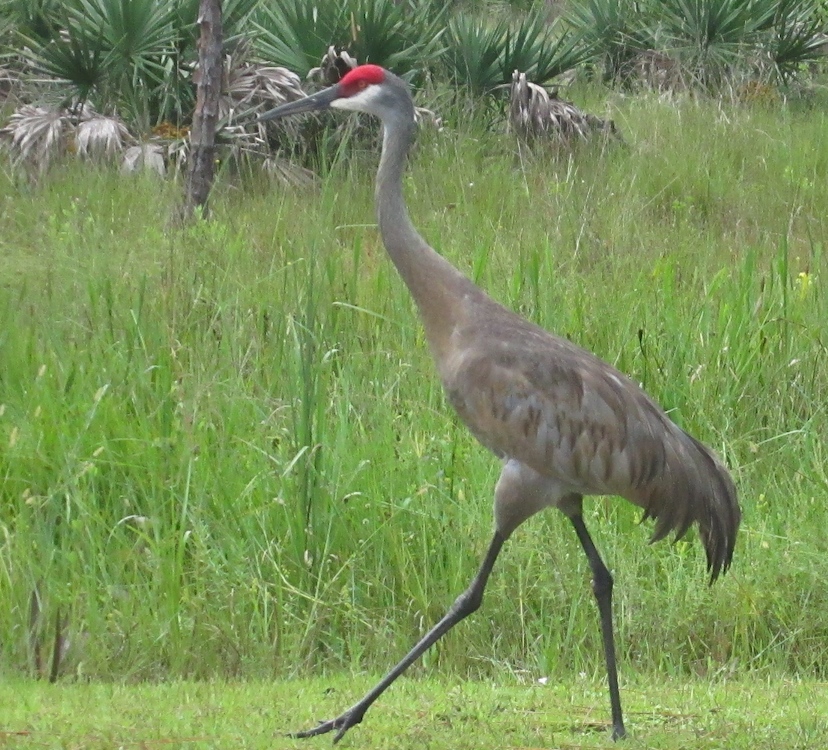Florida (1946)
The state with the prettiest name, the state that floats in brackish water, held together by mangrove roots that bear while living oysters in clusters, and when dead strew white swamps with skeletons, dotted as if bombarded, with green hummocks like ancient cannon-balls sprouting grass. The state full of long S-shaped birds, blue and white, and unseen hysterical birds who rush up the scale every time in a tantrum. Tanagers embarrassed by their flashiness, and pelicans whose delight it is to clown; who coast for fun on the strong tidal currents in and out among the mangrove islands and stand on the sand-bars drying their damp gold wings on sun-lit evenings. Enormous turtles, helpless and mild, die and leave their barnacled shells on the beaches, and their large white skulls with round eye-sockets twice the size of a man's. The palm trees clatter in the stiff breeze like the bills of the pelicans. The tropical rain comes down to freshen the tide-looped strings of fading shells: Job's Tear, the Chinese Alphabet, the scarce Junonia, parti-colored pectins and Ladies' Ears, arranged as on a gray rag of rotted calico, the buried Indian Princess's skirt; with these the monotonous, endless, sagging coast-line is delicately ornamented. Thirty or more buzzards are drifting down, down, down, over something they have spotted in the swamp, in circles like stirred-up flakes of sediment sinking through water. Smoke from woods-fires filters fine blue solvents. On stumps and dead trees the charring is like black velvet. The mosquitoes go hunting to the tune of their ferocious obbligatos. After dark, the fireflies map the heavens in the marsh until the moon rises. Cold white, not bright, the moonlight is coarse-meshed, and the careless, corrupt state is all black specks too far apart, and ugly whites; the poorest post-card of itself. After dark, the pools seem to have slipped away. The alligator, who has five distinct calls: friendliness, love, mating, war, and a warning-- whimpers and speaks in the throat of the Indian Princess. |
by Elizabeth Bishop (1911-1979)
|
 |
|
George Inness, Tarpons Springs, Florida. 1892.
Sand Hill Crane in Southeast Florida. Brown Pelicans in Southwest Florida.
White heron in Florida's Keys. |
Elizabeth Bishop,
(February 8, 1911 Ð October 6, 1979)
She was born in Worcester, Mass. In 1938 she purchased a home in Key West after returning from Europe and before departing for Brazil.
http://www.english.illinois.edu/maps/poets/a_f/bishop/about.htm
See other Bishop poems at:
http://www.english.illinois.edu/maps/poets/a_f/bishop/bishop.htm
Compare to Rober Frost's The Road Not Taken
What is environmental literature?


